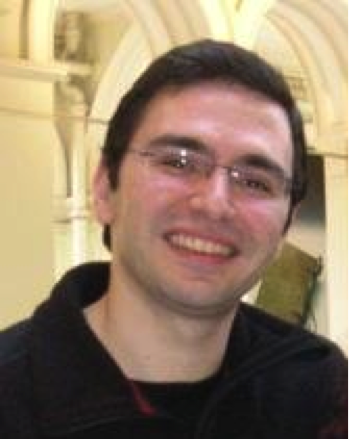Keynote Speakers
| Title:Improving Students’ Writing with Automated Grammatical Error Correction(Slides) | |
 |
NG Hwee Tou (Department of Computer Science, School of Computing, National University of Singapore) |
| Abstract: It is estimated that more than one billion people worldwide are learning English as a second language. As such, automated tools that carry out grammar checking will make a significant impact by improving their writing in English. This problem is of particular relevance in the Asian context, as many second language learners of English come from Asia. Recently, there is an increased interest in the task of grammatical error correction among researchers in natural language processing, as witnessed by three shared tasks organized in the past three years −; HOO 2011, HOO 2012, and CoNLL 2013. In this talk, I will review recent research and advances in grammatical error correction, including state-of-the-art approaches and the findings of the CoNLL 2013 shared task where I was the lead organizer. |
|
| Bio: Dr. Hwee Tou NG is a Professor of Computer Science at the National University of Singapore (NUS) and a Senior Faculty Member at the NUS Graduate School for Integrative Sciences and Engineering. He received a PhD in Computer Science from the University of Texas at Austin, USA. His research focuses on natural language processing and information retrieval. He is a Fellow of the Association for Computational Linguistics (ACL). He has published papers in premier journals and conferences, including Computational Linguistics, Journal of Artificial Intelligence Research (JAIR), ACM Transactions on Information Systems (TOIS), ACL, EMNLP, SIGIR, AAAI, and IJCAI. His papers received the Best Paper Award at EMNLP 2011 and SIGIR 1997. He is an action editor of the Transactions of the Association for Computational Linguistics (TACL), an editorial board member of Natural Language Engineering, and a steering committee member of ACL SIGNLL. He has also served as the Editor-in-Chief of ACM Transactions on Asian Language Information Processing (TALIP) (May 2007 − May 2013) and an editorial board member of Computational Linguistics (2004 − 2006) and Journal of Artificial Intelligence Research (JAIR) (Sep 2008 − Aug 2011). He was an elected member of the ACL executive committee (2008 − 2010) and a former secretary of ACL SIGNLL. He was program co-chair of EMNLP 2008, ACL 2005, and CoNLL 2004 conferences, and has served as area chair of ACL, EMNLP, SIGIR, and AAAI conferences and as session chair and program committee member of many past conferences including ACL, EMNLP, SIGIR, AAAI, and IJCAI. |
|
| Title:What a beautiful multilingual world: BabelNet 2.0 & friends! | |
 |
Roberto Navigli (Department of Computer Science at the Sapienza University of Rome ) |
| Abstract: The textual content that is available on the Web is becoming ever increasingly multilingual, providing an additional wealth of valuable information. Most of this information, however, remains inaccessible to the majority of users because of language barriers. Consequently, both humans and automatic systems need tools which will enable them to enjoy the beauty and the usefulness of this varied multilingual world. BabelNet is a major project under way at the Linguistic Computing Laboratory of the Sapienza University of Rome, focusing on the creation of a very large multilingual semantic network. In this talk I introduce, for the first time, a major new version of the network, named BabelNet 2.0, which covers 50 languages and provides both lexicographic and encyclopedic knowledge for all the open-class parts of speech. As such, BabelNet 2.0 represents an ideal solution not only for humans, who can use it as a multilingual encyclopedic dictionary (http://babelnet.org), but also for the multilingual processing of text, thanks to a new high-performance API. In the last part of the talk I will showcase some appealing applications of BabelNet to: multilingual word sense disambiguation, semantically-enhanced open information extraction and large-scale harvesting of semantic predicates. |
|
| Bio: Roberto Navigli is an Associate Professor in the Department of Computer Science of the Sapienza University of Rome. He was awarded the Marco Cadoli 2007 Italian National Prize for the best doctoral thesis in Artificial Intelligence and he is the recipient of an ERC Starting Grant in computer science and informatics on multilingual word sense disambiguation (2011-2016). His research lies in the field of Natural Language Processing (including word sense disambiguation and induction, ontology learning from scratch, large-scale knowledge acquisition, open information extraction and relation extraction). Currently he is an Associate Editor of the Artificial Intelligence Journal, a member of the editorial boards of Computational Linguistics and the Journal of Natural Language Engineering, and a guest editor of the Journal of Web Semantics. |
|